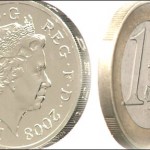Gold traded slightly lower in a quiet early session on Tuesday as investors abstained from entering big positions ahead of the Federal Reserves two-day policy meeting.
Gold futures for delivery in December traded 0.02% lower at $1 107.5 per troy ounce at 07:02 GMT, shifting in a daily range of $1 108.5 – $1 105.5. The contract rose 0.4% on Monday to $1 107.7 after it closed the previous week 1.5% lower, a third straight weekly drop.
Investors avoiding big exposure kept the market within a tight trading range as traders estimate a 28% chance of rates being increased this month, according to Bloomberg data, while the odds for a hike in December were 59%. A majority of analysts and investors had previously projected a September move was most likely, but those expectations have eased recently due to fears of an economic slowdown in China and subsequent volatility in financial markets.
The Federal Reserve will begin its policy meeting on Wednesday and conclude it on Thursday with a statement that is expected to bring insight into the central bank’s stance on interest rates, even if no actual action is taken. Rock bottom borrowing costs in recent years have been beneficial for gold as they reduce the opportunity cost of holding the precious metal, which doesn’t pay interest and yields returns only through price gains. However, the yellow metal has remained under pressure ever since the Federal Reserve announced it will begin paring back its Quantitative Easing program, and ultimately ended it, followed by a gradual increase in interest rates.
In case Thursdays decision brings a rate hike, gold is expected to drop under the $1 100 mark, while a delay could propel it toward $1 150. However, upside momentum would probably remain limited as expectations for the central bank to raise interest rates are very much likely to materialize this year, or at any close subsequent meeting.
Recent US data have also helped reduce the probability of a September hike. A preliminary report showed on Friday that consumer sentiment in the US in September slid to the lowest in a year, with the corresponding preliminary Michigan Consumer Sentiment index sliding to 85.7 from 91.2 in August. Producer inflation remained flat compared to a month earlier, according to a separate report, although the reading beat expectations for a 0.1% contraction.
Data on Tuesday are also expected to paint a mixed picture, with retail sales projected to have risen 0.3% in August, while industrial production likely declined 0.2% last month and manufacturing activity in the New York region contracted for a second month in September.
Holdings in gold-backed ETPs fell for six straight days through Friday and were at the lowest in three weeks. Assets in the SPDR Gold Trust, the biggest bullion-backed ETF, were unchanged for a third day at 678.18 metric tons on Monday, remaining nearly 50% below a peak of 1353.35 tons in December 2012.
Pivot points
According to Binary Tribune’s daily analysis, December gold’s central pivot point on the Comex stands at $1 106.7. If the contract breaks its first resistance level at $1 110.8, next barrier will be at $1 113.9. In case the second key resistance is broken, the precious metal may attempt to advance to $1 118.0.
If the contract manages to breach the S1 level at $1 103.6, it will next see support at $1 099.5. With this second key support broken, movement to the downside may extend to $1 096.4.
In weekly terms, the central pivot point is at $1 108.4. The three key resistance levels are as follows: R1 – $1 118.6, R2 – $1 133.7, R3 – $1 143.9. The three key support levels are: S1 – $1 093.3, S2 – $1 083.1, S3 – $1 068.0.





